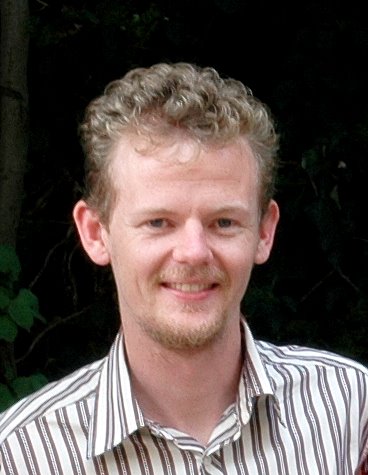
Tobias J. Osborne, Ph.D.
Physics
University of London
Born in 1977 in Tasmania, Australia
Studied Mathematics and Physics at the University of Queensland
Focus
Classical Simulation of Quantum Systems: Classical Information vs. Quantum Information
Project
Simulation of Disordered Quantum Systems
In practice, one never seems to find that quantum lattice systems are hard to simulate: we can easily construct difficult quantum lattice systems, but we never seem to encounter them in nature. This project is aimed at explaining this mystery: I aim to show that introduction of the tiniest amount of disorder to any system, difficult systems, will render them easy to simulate. Thus, naturally occurring systems - which always have some level of disorder - are easy to simulate. I'll then further explore this observation by supplying a computational method to understand the physics of disordered quantum lattice systems. In the final part of this project I'll take this observation to its logical extreme: I'll show that adding lots of noise to an evolving quantum lattice will "supercharge" it, thus allowing it to quickly explore many paths at once, and rendering it a powerful quantum computational tool.Recommended Reading
Osborne, Tobias J. 2006. "Efficient approximation of the dynamics of one-dimensional quantum spin systems." Phys. Rev. Lett. 97, 157202, quant-ph/0508031.
Osborne, Tobias J. and Michael A. Nielsen. 2002. "Entanglement in a simple quantum phase transition." Phys. Rev. A 66, 032110, quant-ph/0202162.
Burrell, Christian K. and Tobias J. Osborne. 2007. "Bounds on information propagation in disordered quantum spin chains." Phys. Rev. Lett. 99, 167201, quant-ph/0703209.
Colloquium, 26.01.2010
Physics and computational complexity theory: how hard is it to solve the equations of physics?
Until recent times the emphasis of research in physics has been on the discovery and formulation of the defining laws of the universe, i.e., the laws that tell us how natural things will behave. So far, the most efficient way to capture these laws has been via equations. The utility of equations in physics extends far beyond the conciseness they afford as they allow us to leverage the potent deductive tools of mathematics to reason efficiently about physical systems - in the words of E. P. Wigner:
"The miracle of the appropriateness of the language of mathematics for the formulation of
the laws of physics is a wonderful gift which we neither understand nor deserve."
Thus, considerable effort has been invested into the task of translating the laws of the universe into equations. For many practical purposes this monumental task was completed in the late 1950s. Since then a majority of research in physics has been focussed on the ostensibly less glamorous task of solving the equations to make predictions to be later verified experimentally. These consistency checking processes are, comparatively speaking, regarded as more an engineering problem. This has lead some observers to declare that the end of science is nigh.
Recently, however, indications have emerged that the "mere" engineering task of solving the equations of motion
of a system hides a heretofore unexpected complexity: there exist naturally occurring systems whose defining
equations defy any practical solution; even using the fastest computers it would take many centuries to make predictions about them. This discovery is disturbing: if we are unable to practically solve the equations describing a system we can no longer make physical predictions about it. Thus the disquieting possibility that the laws of physics may never be verifiable,
even in principle, presents itself.
In my presentation I will discuss this conundrum and present a partial solution by appealing to a thesis of Church and Turing, originally formulated in the nascent field of computability and complexity. Applying these ideas have already lead to progress in understanding the origins of complexity in physical systems and a practical and useful guide to explaining what equations are likely to provide a good description of a naturally occurring system.
Publications from the Fellow Library
Osborne, Tobias J. (College Park, Md., 2011)
Information propagation for interacting-particle systems
Osborne, Tobias J. ([Bad Honnef], 2010)
Ground states of unfrustrated spin Hamiltonians satisfy an area law
Osborne, Tobias J. (College Park, Md, 2010)
Osborne, Tobias J. (College Park, MD, 2010)
Unfrustrated qudit chains and their ground states
Osborne, Tobias J. (2010)
Applying the variational principle to (1+1)-dimensional quantum field theories
